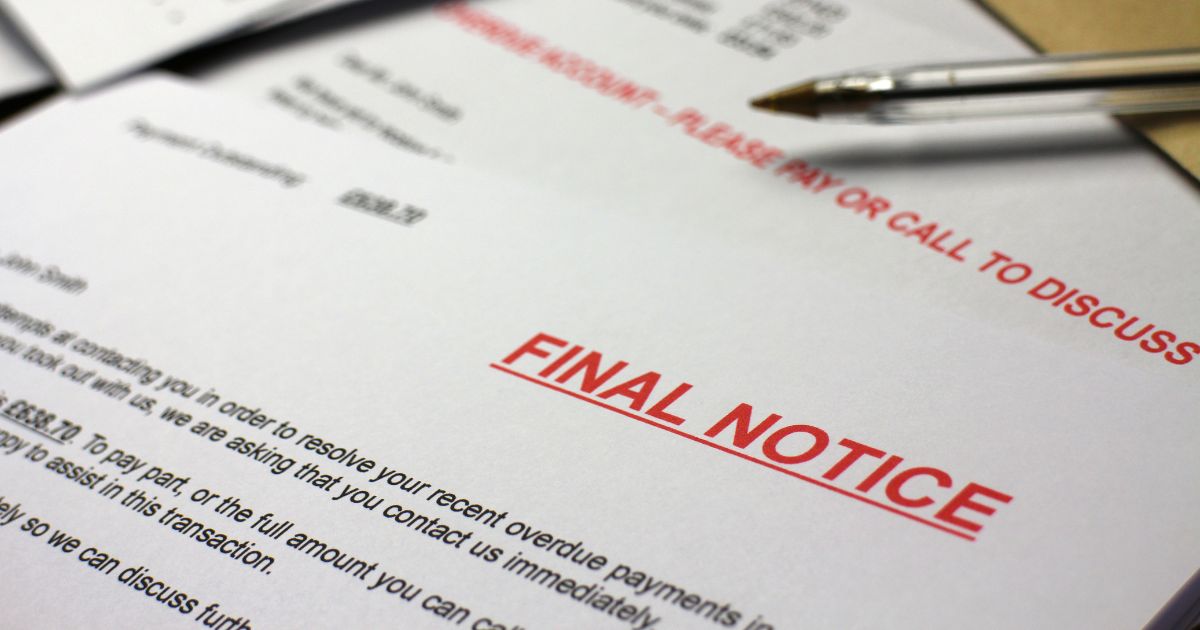Many Americans have found themselves in the position of falling behind on their bills for a period longer than intended. When this occurs, it is common practice for financial institutions to turn past due accounts over to third-party debt collectors. While these debt collectors are permitted to negotiate payment plans with you, they do not have the right to harass you or otherwise behave aggressively.
The Fair Debt Collection Practices Act (FDCPA) was established to protect such individuals from third-party debt collectors’ unfair and illegal debt collection practices. Debt collectors are required to follow the enacted guidelines, and if they behave inappropriately or harass the debtors, they will be held financially and legally responsible.
The Consumer Financial Protection Bureau’s (CFPB) Debt Collection Rule became effective in 2021, and it clarifies certain provisions of the FDCPA. The new rule states how debt collectors can communicate with you and what information they are required to provide at the outset of collection about the debt, your rights in debt collection, and how you can exercise those rights. It is helpful to review the key elements to know about the new rule in order to determine if a debt collector is acting within their legal limits.
The FDCPA considers the following actions to be harassment by a debt collector:
- Calling you at work after being informed not to.
- Calling before 8:00 a.m. or after 9:00 p.m.
- Calling at any time known to be inconvenient to you.
- Threatening to injure you.
- Threatening to harm your reputation.
- Threatening to sue you or garnish your wages.
- Threatening you with criminal prosecution.
- Using profanity, obscenity, and inflammatory remarks.
- Speaking with other individuals about your debt.
- Calling several times in one day for the purpose of annoying you.
- Refusing to identify themselves.
Did You Receive a Debt Collection Validation Notice?
Debt collectors are generally required to provide certain information about the debt when they first communicate with you or shortly thereafter. A validation notice is that information provided in writing or electronically, and it should include:
- Name and contact information of the debt collector.
- Name of the institution to whom the debt is owed.
- Any account number associated with the debt.
- Current amount of the debt, including interest, fees, payments, and any credits that you may be able to recognize or verify with records.
- Current amount of the debt as of the date the validation notice was provided.
- Information about your debt collection rights and how to dispute the debt.
The debt collection validation notice is intended to help you identify whether you owe the specific debt and whether the debt collector’s information about the debt is accurate. Importantly, the notice is required to include a tear-off form that you can return to the debt collector to dispute the debt or take other actions.
How Many Times Can a Debt Collector Call You?
The FDCPA prohibits debt collectors from continuously calling you with the intent to harass, oppress, or abuse you. It also prohibits them from engaging in repeated telephone conversations intended to harass you.
Under the new rule, debt collectors are considered to violate the law if they call you about a particular debt:
- More than seven times within a seven-day span.
- Within seven days after actually engaging with you about a particular debt.
Debt collectors are presumed to comply with the law if they do not make calls over either of the above limits. It is important to note that the term “particular debt” refers each of your debts in collection and that the limits apply per debt. When a debt collector is collecting on multiple debts, there may be other considerations in determining a violation of the law. For example, there are situations in the cases of student loan debts when multiple debts can be counted together as one particular debt. In those cases, the limitations would apply to those debts as one group.
Other factors, including the frequency and pattern of phone calls and voicemails, as well as prior communications, may be used to challenge a presumption that a debt collector either complied with or violated the law. For example, if a debt collector placed seven calls to you about a particular debt within a seven-day period, but all seven calls were made in one day, they are violating the law.
Is a Debt Collector Allowed to Contact You On Social Media?
Debt collectors are permitted to contact you through social media, but they are required to follow certain rules. The following are rules debt collectors must follow:
- Messages must be private: Debt collectors can only communicate with you on social media about a debt if the message is private. They are not allowed to contact you on social media about a debt if the message is viewable to the general public or by your friends, contacts, or followers on the social media platform. This includes your publicly visible profile pages or any part of a social media platform where other people can see the message.
- Debt collectors must identify themselves: If a debt collector tries to send you a private message requesting to add you as a friend or contact, they must identify themselves as a debt collector.
The debt collector must provide you, in each message, with a simple way to opt out of receiving future communications from them on that social media platform.
Are There Rules About Debt Collectors’ Voicemail Messages?
Debt collectors are allowed to leave you a type of voicemail called a “limited-content message.” A limited-content message is not considered to be a “communication,” meaning that it is not subject to other legal requirements. Debt collectors who leave only limited-content messages do not violate the prohibition against third-party communications, for example.
Limited-content messages must state specific information, including the following:
- Business name that does not indicate the call is from a debt collector.
- Telephone number you can use to return the call.
- Request that you reply to the voicemail, and the name of the person you can contact to respond.
Optional information limited-content messages may include:
- Greeting or salutation.
- Date and time of the message.
- Suggested dates and times for you to respond.
- Statement indicating that you may speak to any of the company’s representatives.
Voicemail messages that are not compliant with the rules are not considered limited-content messages and are in violation of the law. To be a limited-content message, the voicemail message cannot contain any other information than that noted above. Messages other than voicemail messages, such as text messages or emails, do not fall under limited-content messages.
When Can a Debt Collector Report a Debt to a Credit Reporting Agency?
The CFPB’s Debt Collection Rule requires that debt collectors to take certain steps before reporting a debt to a credit reporting agency. After a debt collector has followed the rules regarding how they can contact you, then they can report your debt to a credit report agency, provided they also follow the laws about credit reporting.
Before a debt collector can report your debt to a credit reporting agency, the debt collector must do one of the following:
- Speak with you in person about the debt.
- Speak with you by telephone about the debt.
- Mail you a letter about the debt and wait a reasonable amount of time, generally two weeks, for a notice that the letter was not delivered.
- Send you an electronic communication about the debt and wait a reasonable amount of time, generally two weeks, for a notice that the message was not delivered.
If you receive a validation notice about a debt from a debt collector, it reflects that they have satisfied their requirement to contact you and may begin to report the debt to credit reporting agencies.
It is important that you regularly check your credit reports for accuracy, whether or not you have any debt in collection. Further, if you believe a debt collector has improperly reported a debt to a credit reporting agency without meeting their requirements under the FDCPA, you can submit a complaint with the CFPB.
What Should You Do if You Are Being Harassed by a Debt Collector?
If a debt collector is harassing you, it is time for you to consult an experienced lawyer. It is in your best interest to contact a lawyer who has knowledge and experience in debt collection harassment and who can advise you on the proper way to proceed in your case.
Pittsburgh Debt Collection Defense Lawyers at East End Trial Group Can Help You if You Are Being Harassed By a Debt Collector
If you are being harassed by a debt collector, one of our skilled Pittsburgh debt collection defense lawyers at East End Trial Group can help. Call us at 412-223-5740 or contact us online to schedule a free consultation. Located in Pittsburgh, we serve clients throughout Pennsylvania.

 Call Us Today 412-223-5740
Call Us Today 412-223-5740
